Saturdays are meant to be the busiest days for many downtown San Marcos businesses, but several shops have been negatively impacted due to markets on The Square switching from monthly to weekly.
From thrift stores to apothecaries, small businesses find themselves competing with the Saturday markets, which include the Vanilla Bean Market, Art Squared Market and seasonal festivals such as the Tamale Fest and Merry On The Squarey.
One negatively impacted local business is a vintage clothing store named Vagabond. David Marrs has owned his business for over 20 years.
“It kills [my sales],” Marrs said. “They’re not bringing anything to me; the city says by having them there, it’s helping the economy around here.”
Business owners are told by those who organize the markets they may be good for the economy and bring customers into the downtown area to trickle off and visit local businesses, but that’s not what business owners are seeing.
“Why are you hurting businesses that are here contributing to the economy every day?” Marrs said. “You may get a little sugar rush, but [the markets] are crippling the businesses that are here every day, and people like me who have been here every day for 23 years.”
Another issue surrounding the markets’ economy is many vendors come from outside San Marcos, meaning the money they make does not circulate back to local businesses, as they would return to their cities to spend most of the money there.
“What are they contributing? Something to the community? No, not really,” Marrs said. “They’re competing with me and taking money away from me. That is a percentage of money that I would add back to the community and they are not.”
It is unlikely vendors are paying San Marcos taxes unless they live in the city, which is something local businesses have to do. According to Tax Hero, businesses in San Marcos must pay a sales tax rate of 8.25%. However, vendors still have to pay taxes to the state comptroller every quarter based on sales, as well as the IRS, given they follow these rules.
“[Our taxes] go to the schools and upkeep of the roads,” Marrs said. “I know a bunch of these [vendors] don’t live here, so they’re pulling from [San Marcos].”
Vendors and customers of the markets affect local businesses in other ways, such as taking up the limited parking spaces downtown that could be used for customers of the shops, and devaluing products sold at local businesses.
The city tends to suggest local businesses should start vending at the markets too, but many don’t believe it’s affordable or fair that they should have to compete in the first place, due to already having to pay for and upkeep a brick and mortar business.
Many local businesses don’t believe markets should stop altogether, but they do want solutions to be implemented. Some solutions could be decreasing the frequency of markets, creating parking specified for vendors and market customers and more signage promoting local businesses.
While the downtown markets are a fun addition to the community, local businesses don’t deserve to have their sales negatively impacted. The markets should not end, but mindful solutions must be implemented.
–Jayce Jackson is a journalism sophomore
The University Star welcomes Letters to the Editor from its readers. All submissions are reviewed and considered by the Editor in Chief and Opinions Editor for publication. Not all letters are guaranteed for publication.



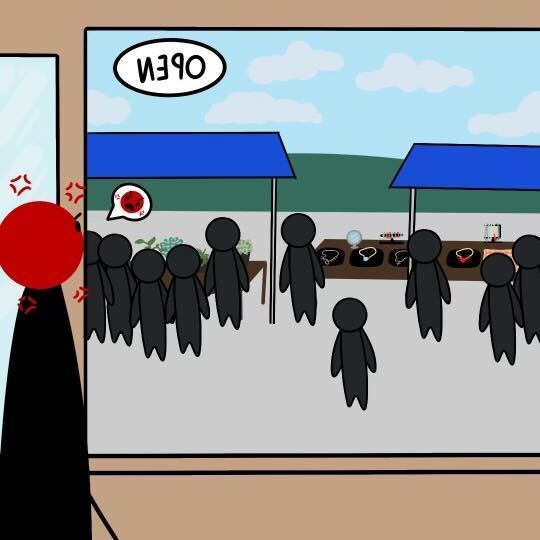

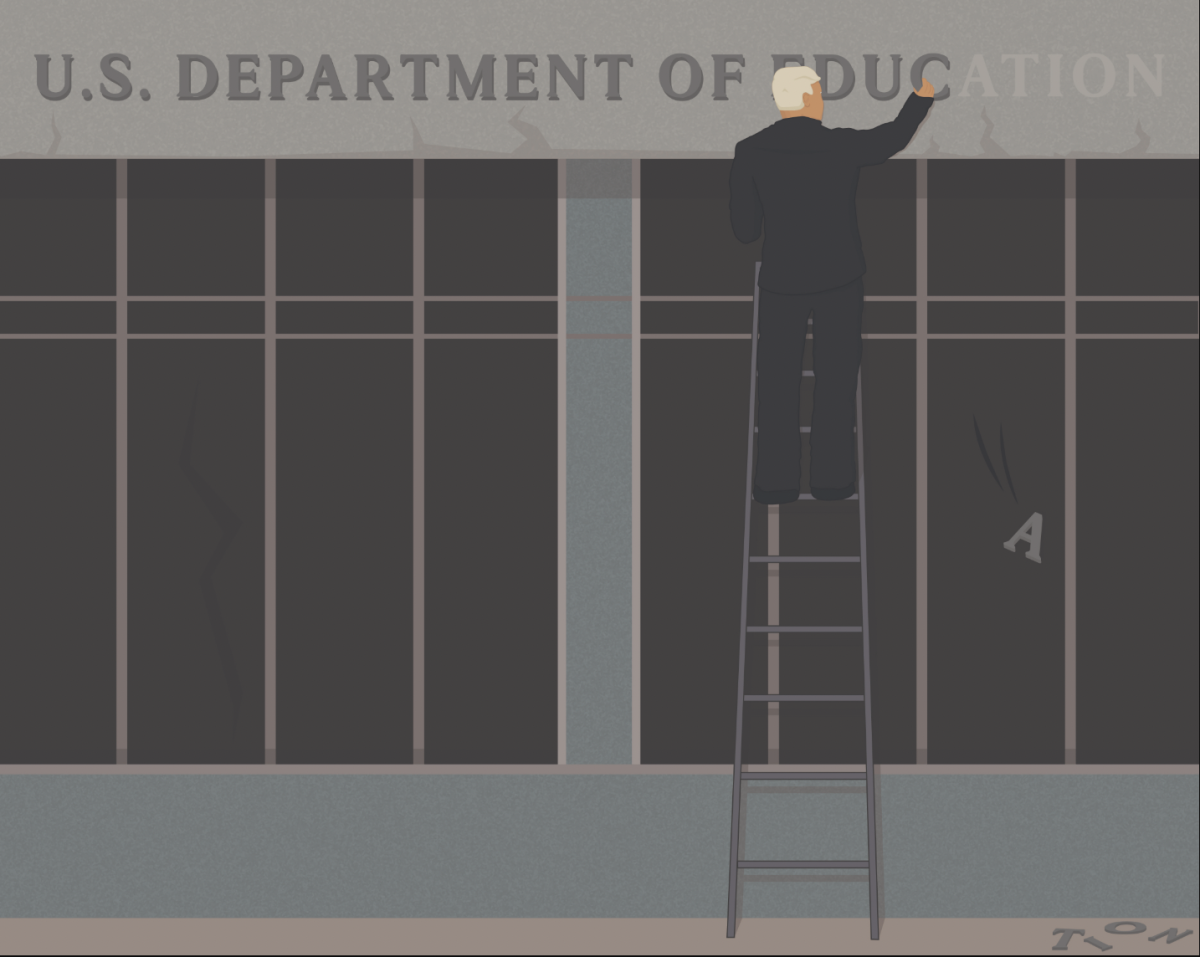
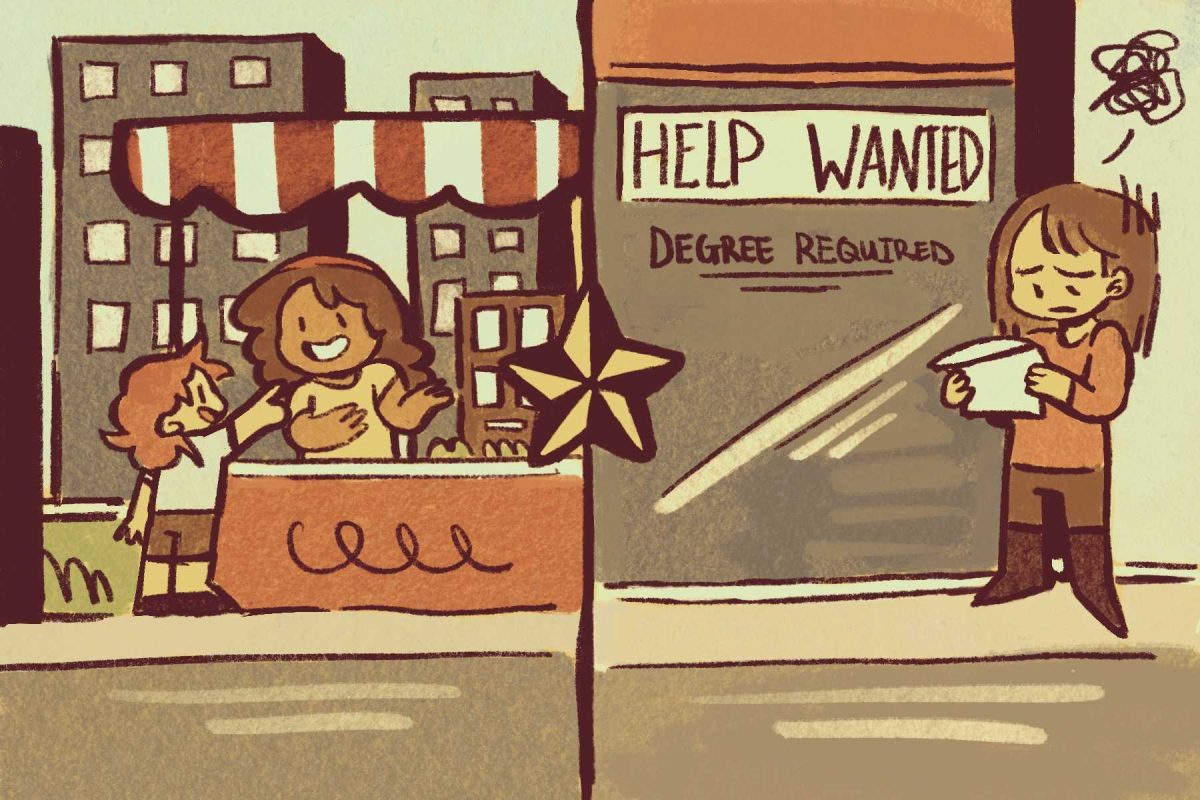
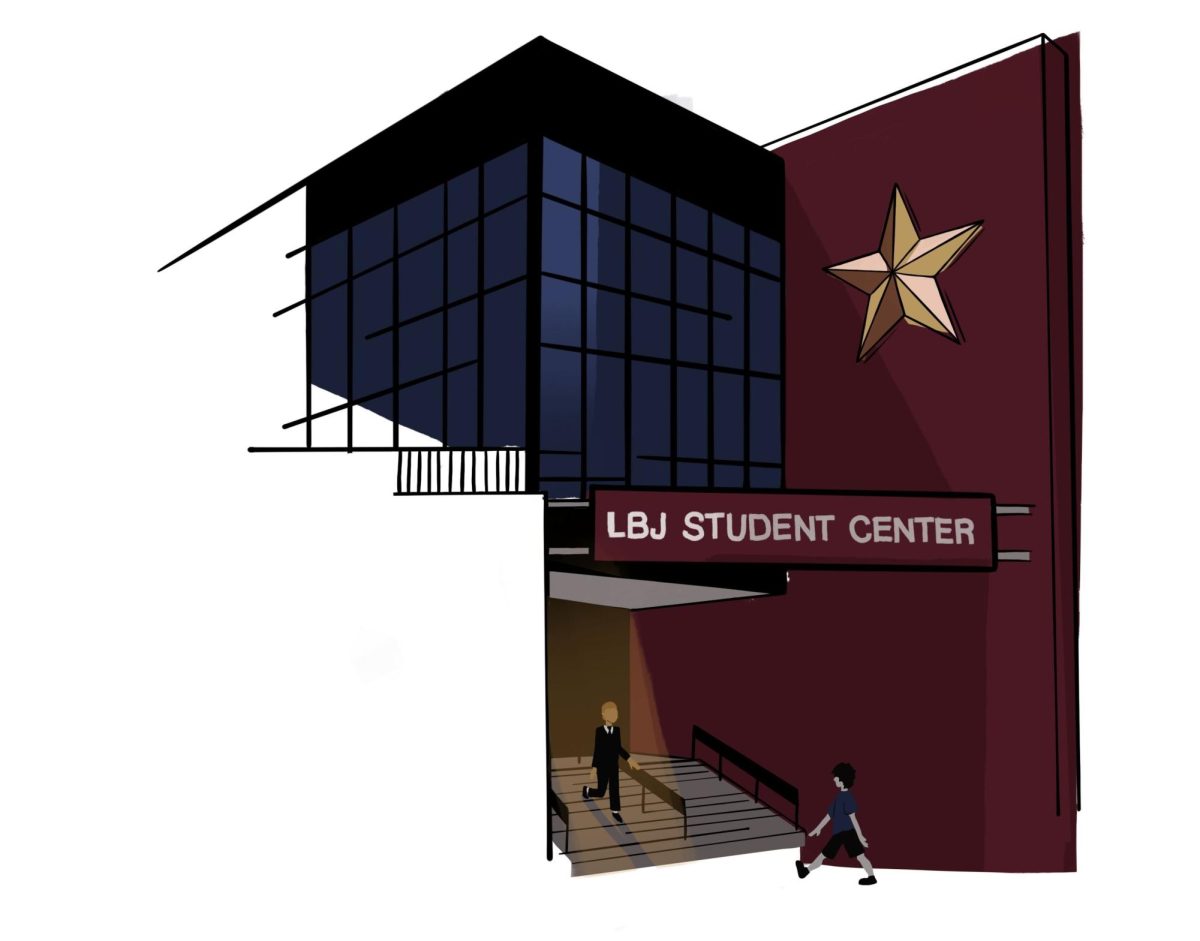
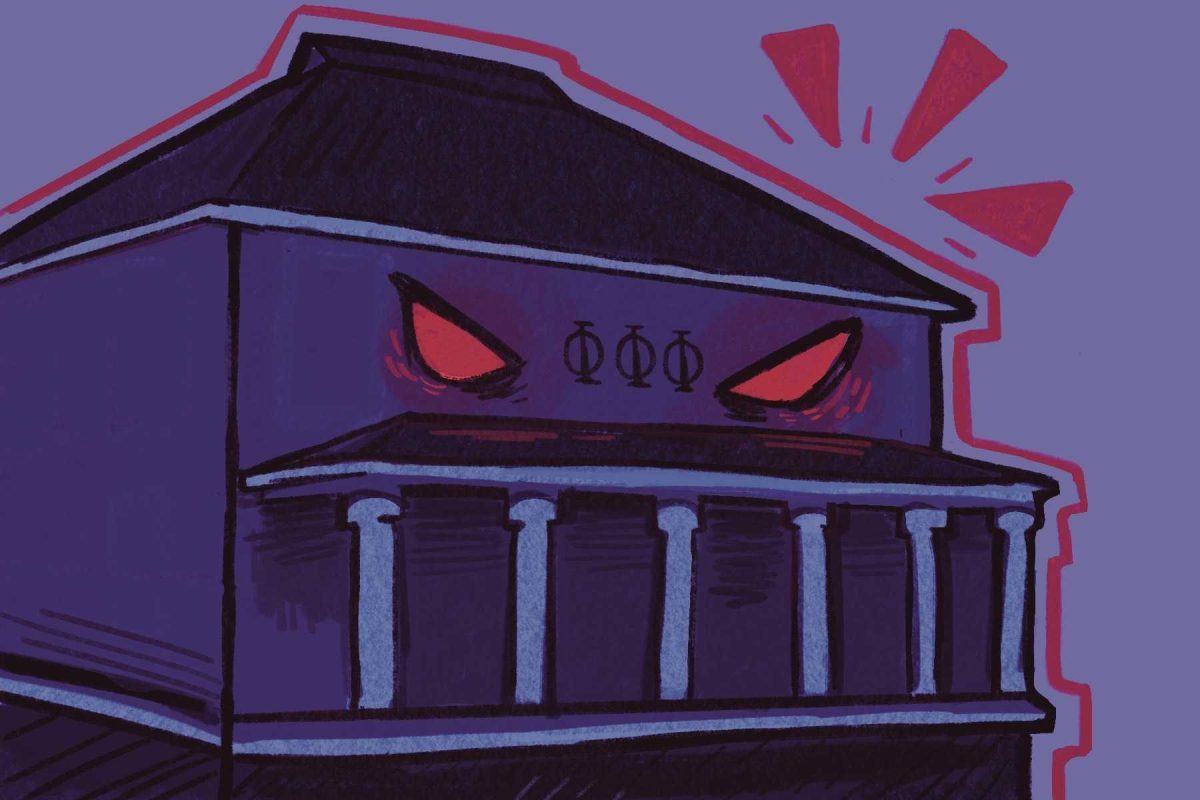
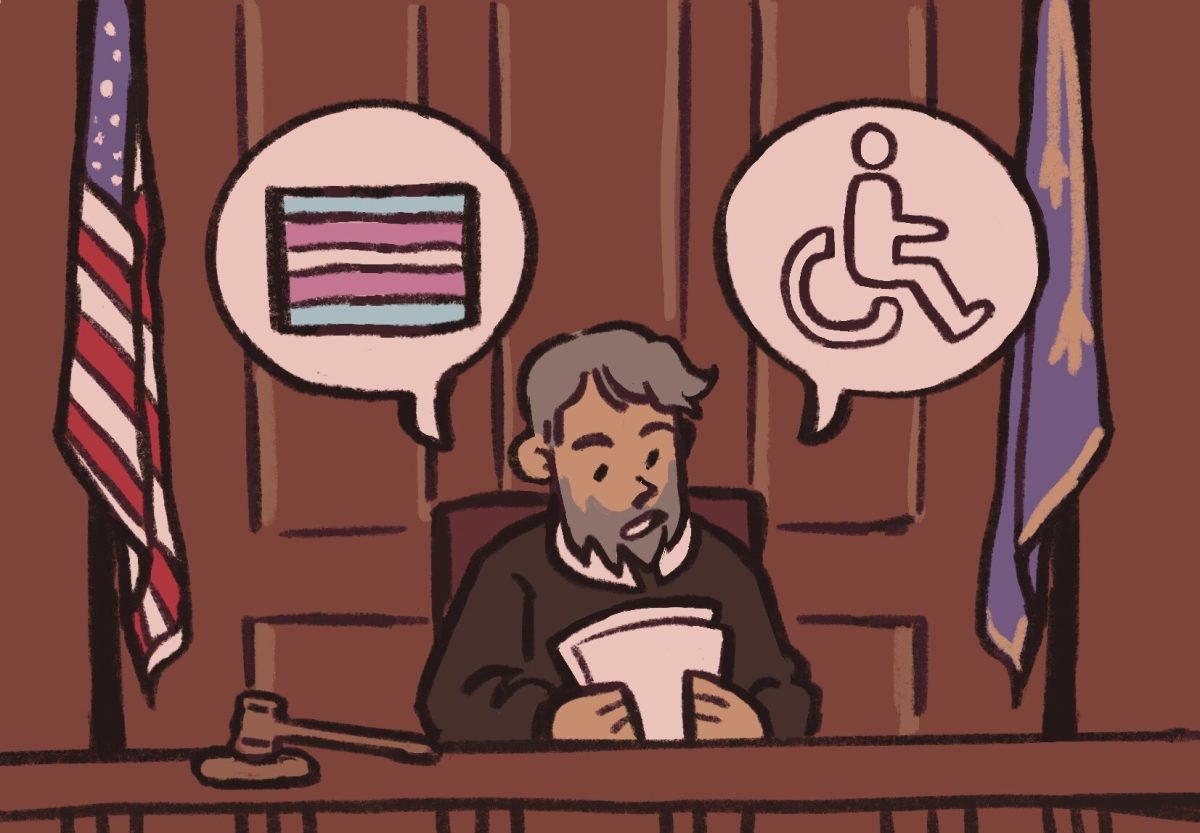












Lynn • Dec 6, 2024 at 10:31 pm
As a small business owner, on the Square in San Marcos, TX., I can validate this Opinion Article to be 100% accurate. When I opened my small business a few years ago, there was only the Farmers’ Market on Saturdays until 1:00 p.m. and Art Squared once a month with actual juried Artwork until 5:00p.m. Us retail owners took the vending with stride. We knew that the one day a month would be a bust and just sucked it up.
Now, there is vending almost every weekend and people are not only selling Artwork but wholesale items as well. This has impacted my business greatly as well as other business owners on and near the Square. One shop owner has stated that her sales have gone from $2,000.00 on a Saturday, down to $200.00 due to the vending. My shop sees a 50% decline in sales anytime there is vending going on the square. I also know for a fact that people will not even vend for the SMTX Farmers’ Market when these other vending events are going on due to such low sales. The cost to vend at the SMTX Farmers’ Market is only $10.00 a day. It simply is not worth their time. These vendors also park in the parking spaces in front of our shops. Leaving their cars there all day, taking away from our, actual customers being able to park and shop in our stores that we, as legit shop owners, pay greatly for in rent.
For all the people vending who want to attack me for my comments, saying that they are a legit business as well, answer this…….
1. Are you an actual registered business in the State of Texas?
2. Do you have a valid State of Texas Resale Number?
3. Do you pay for insurance on your business?
4. Do you pay monthly or quarterly State Taxes on your business?
5. Do you pay out on an actual W-2 for your employees?
6. Do you have an actual POS system?
7. Do you do an accurate weekly, monthly &/or yearly inventory out of fear of being audited by the IRS?
8. Last but not least, do you pay out over 35% on the dollar in taxes as an actual, legit business?
If not, you are not a small business! You are someone who is playing shop on the Tax Payers’ dime, wanting to act like you are a small business.
Paul Claude • Dec 5, 2024 at 3:38 pm
Did the “journalist” interview anyone about this issue?
Tara • Dec 4, 2024 at 5:47 pm
I don’t know man the markets are kind of better than what’s inside overpriced Vagabond. I’ve been to both places, and honestly, I’d prefer the markets. If your store isn’t offering what college students are looking for or afford maybe that’s a you problem? “They’re competing with me and taking money away from me” … okay. Sounds like capitalism. I think the only real issue of the markets is the parking, but downtown parking sucks in general. This sure is an opinion.
Madfeesh • Dec 6, 2024 at 9:51 pm
This article and response illustrates the poor capacity of Mainstreet staff and City tourism staff to build a cooperative strategy to revitalize downtown San Marcos. I worked downton once, and tried to build a coalition, but City staff insist on throwing PR darts and marginalize others’ creativity, instead, searching for dumb magic words like ‘Merry Sqaurey’ It’s another of Jane’s legacies (like the boarded up windows on vacant buildings) that will take years to heal. It’s time for capable staff and capable leadership. Tax incentives for the outskirts will never fix the rotting corps of downtown. Some us have vision and all the cities around us thrive.